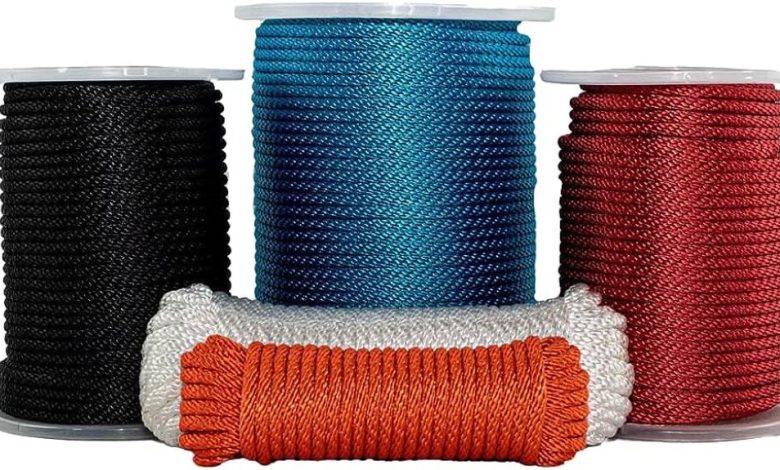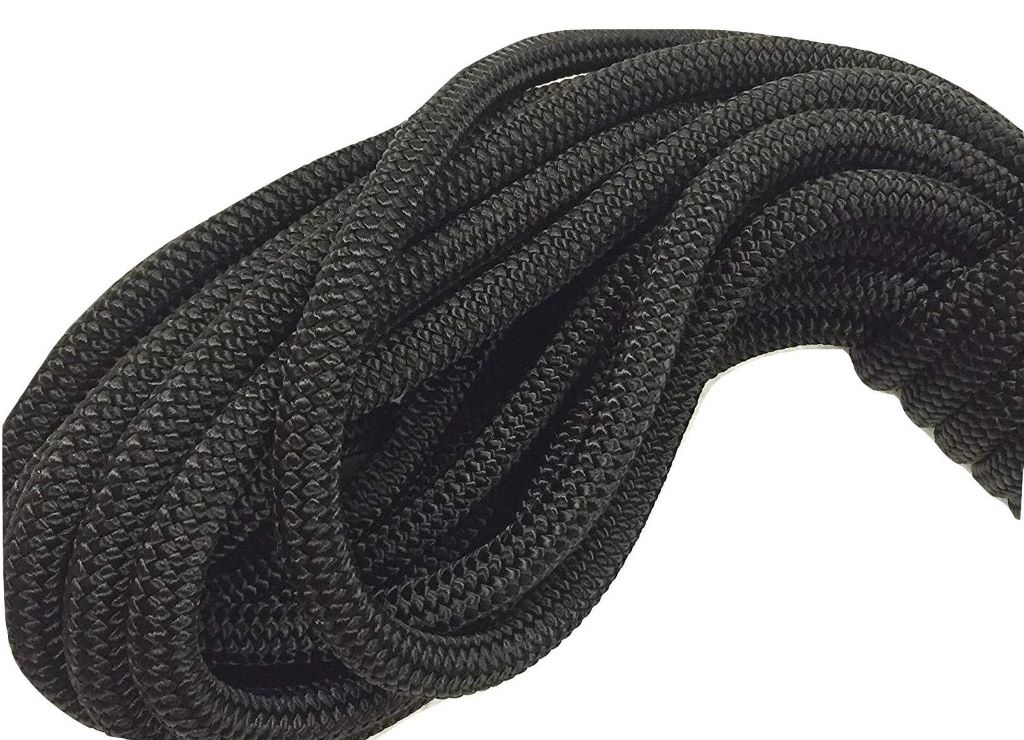What is the Tensile Strength of 3/8 Braided Nylon Rope

Have you ever wanted to know how strong a piece of rope can be? Well, today we’re going to uncover the mystery behind the tensile strength of 3/8 braided nylon rope. We’ll break it down so you’ll have a clear understanding of what makes this rope tick. And if you’re looking to secure the ends of your nylon rope, you may want to consider using nylon rope clamps for a secure hold.
What is 3/8 Braided Nylon Rope?
Before we delve into its tensile strength, let’s get to know our star of the show a little better. 3/8 braided nylon rope is a type of rope made from nylon fibers that are woven or braided together. It gets its name from its thickness, which is 3/8 of an inch. Nylon, by the way, is a synthetic material known for its strength, durability, and flexibility.
Imagine a group of friends holding hands to form a human chain. Each friend represents a nylon fiber, and their interlocking hands represent the braiding process. This intertwining makes the rope robust, much like how the strength of a chain depends on the grip of each person.
Tensile Strength: The True Measure of Strength
Now, let’s talk about tensile strength. It’s like the superhero power of a rope. Tensile strength measures how much force a material, like our braided nylon rope, can withstand when it’s being pulled in opposite directions before it snaps. Think of it as a tug-of-war between two mighty teams.
Imagine you’re playing tug-of-war with a bunch of friends, and you’re holding onto one end of the rope. The other team is pulling with all their might from the opposite end. Tensile strength is the point at which the rope would break. The higher the tensile strength, the tougher the rope.
How is Tensile Strength Measured?
Tensile strength is measured in pounds or newtons. So, when you’re looking at a 3/8 braided nylon rope, you might see a number like “2,500 lbs” written on it. That’s the tensile strength. It means the rope can withstand a force of 2,500 pounds before it gives in to the pressure.
To put it in perspective, picture an adult male lion, one of nature’s strong beasts, weighing around 400 pounds. The tensile strength of this rope is equivalent to withstanding the force of 6 adult male lions pulling in opposite directions. That’s pretty impressive for a piece of nylon rope, right?
Factors That Affect Tensile Strength
Now, here’s where it gets interesting. The tensile strength of a 3/8 braided nylon rope isn’t set in stone. It can vary depending on a few key factors:
- Quality of the Material: Just like not all lions are equally strong, not all nylon fibers are created equal. High-quality nylon will result in a stronger rope.
- Manufacturing Process: The way the rope is made, including the braiding technique, can affect its strength. Careful manufacturing can result in a more robust rope.
- Environmental Conditions: If the rope is exposed to extreme temperatures, UV rays, or chemicals, it can weaken over time. Think of it like how your skin can get sunburned if you’re out in the sun for too long.
- Age and Wear: Over time, any rope can experience wear and tear. Just like a favorite pair of sneakers that eventually wear out, a rope’s tensile strength can decrease with age and use.
- Knots and Splices: When you tie knots or splice the rope, you create stress points. These areas can be weaker than the rest of the rope, so it’s essential to use proper techniques.
Applications of 3/8 Braided Nylon Rope
3/8 braided nylon rope is a versatile workhorse. It’s used in a wide range of applications thanks to its combination of strength and flexibility. Here are a few places you might find it:
- Boating: Nylon ropes are a staple on boats. They can handle the harsh conditions of the open water, and their flexibility makes them ideal for tying knots and securing equipment.
- Climbing: Rock climbers trust nylon ropes with their lives. The high tensile strength ensures safety as they scale cliffs and mountains.
- Construction: On construction sites, nylon ropes are often used for lifting heavy loads. Their strength and durability make them reliable for these demanding tasks.
- Camping and Outdoor Activities: If you’ve ever gone camping or hiking, you’ve probably used nylon ropes for setting up tents, securing gear, or even for a makeshift clothesline.
- Rescue Operations: Search and rescue teams rely on strong ropes for saving lives. Nylon ropes are often used for hoisting and rappelling during these high-stakes operations.
- Home Use: Nylon ropes find their way into everyday life too, like when you need to tie something down on your car’s roof rack or hang a swing in your backyard.
FAQs
Now that we’ve covered the basics, let’s address some common questions you might have about 3/8 braided nylon rope.
1: Can I trust a 3/8 braided nylon rope for heavy-duty tasks?
Absolutely! 3/8 braided nylon rope is known for its strength and durability. It can handle heavy-duty tasks like lifting, towing, and securing loads without breaking a sweat.
2: Is there a specific way to care for my 3/8 braided nylon rope to make it last longer?
Yes, indeed. To prolong the life of your rope, store it away from direct sunlight and extreme temperatures. Avoid contact with chemicals that can weaken the nylon fibers. Regularly inspect it for signs of wear, and if you see any fraying or damage, it’s best to replace it.
3: Can I use 3/8 braided nylon rope for climbing and rappelling?
Absolutely, but with a few caveats. While the strength of the rope makes it suitable for climbing, it’s crucial to use specialized climbing ropes and equipment that meet safety standards. Safety should always come first when it comes to activities like climbing and rappelling.
4: How do I choose the right length of 3/8 braided nylon rope for my needs?
The length of rope you need depends on your specific application. Consider how you’ll be using it, and then add a little extra to be safe. It’s always better to have too much rope than not enough.
5: Can I repair a damaged 3/8 braided nylon rope, or should I replace it?
It’s generally safer to replace a damaged rope rather than attempting to repair it, especially if it’s going to be used for critical tasks like climbing or lifting heavy loads. Damaged ropes can be unpredictable and unreliable, so it’s better to err on the side of caution.
Conclusion
So there you have it—everything you wanted to know about the tensile strength of 3/8 braided nylon rope and more. It’s a remarkable piece of equipment that has found its way into numerous aspects of our lives, from the great outdoors to our everyday tasks. Just remember, whether you’re hoisting a heavy load or securing your camping gear, this rope has got your back with its impressive tensile strength.





